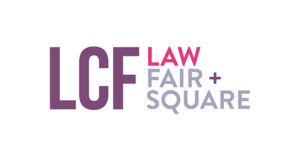New managing partner named at LCF Law
Funding a Purchase by an Employee Ownership Trust
 For a company that is very much reliant on its people, a conventional trade sale can be risky; there is a possibility that key employees may be upset by the sale to the point that they leave. In creative and niche industries where the workforce tends to be close knit and relatively small, this is particularly a risk.
For a company that is very much reliant on its people, a conventional trade sale can be risky; there is a possibility that key employees may be upset by the sale to the point that they leave. In creative and niche industries where the workforce tends to be close knit and relatively small, this is particularly a risk.
This is why setting up an Employee Ownership Trust (EOT) to hold the shares for the benefit of the company's employees may prove to be very attractive.
Employee Ownership Trusts
EOTs were introduced to encourage employee engagement. In addition, employees can all benefit from annual tax free bonuses of up to £3,600.
The big draw for a selling shareholder is that the sales are potentially exempt from capital gains tax, provided that the sellers meet the conditions set out in the legislation.
One of the thorny questions, however, is how the seller receives value for their shares. The company usually makes contributions to the EOT to enable the consideration to be paid, however, either:
- the company borrows in order to fund the contribution to the EOT, in which case all parties need to be sure that the Company can satisfy the repayment obligations along with any other liabilities it may have; or
- contributions are made from ongoing trading receipts and the seller(s) will need to accept that the consideration will include an element of deferred consideration.
With both of these options there are potential issues:
If the company has already borrowed money which has been secured against the assets of the company, then that lender's consent will be needed before any further security can be granted.
If the company is paying the purchase price in deferred instalments the risk is to the seller.
In order to qualify the seller must transfer a controlling interest in the shares, and this covers not only ownership of more than 50% of the share capital but also more than 50% of the voting rights and dividend rights. You can't therefore use a shareholders agreement to reserve decisions for the benefit of the selling shareholders to protect their position. Plus, in a very small company, you also need to ensure that you avoid conflicts of interest, especially where a selling shareholder may be remaining as a director post sale and is also a director of the corporate trustee of the trust fund. Even a grant of vendor security would fall foul of the provisions, although granting security to a third party lender would be permitted.
If you're considering a sale to an EOT as a potential exit route we'd be very happy to talk through the options with you.
If you would like to learn more about EOTs then please contact Cathy Cook on ku.oc1714171149.fcl@1714171149koocc1714171149.
 This article was written by Cathy Cook. Cathy is a Partner in our Corporate Department and is based in Leeds.
This article was written by Cathy Cook. Cathy is a Partner in our Corporate Department and is based in Leeds.
Her clients include owner managed businesses specifically suppliers into the large retailers for whom she has reviewed and drafted terms and conditions, framework agreements and outsourcing agreements.
You can contact Cathy 01132 384 042 or email ku.oc1714171149.fcl@1714171149koocc1714171149
Disclaimer: This blog is for general information and general interest only. It is not to provide legal advice on any general or specific matter, and no such advice is given. Should you like to discuss the points raised in this article, please do not hesitate to contact the author.

